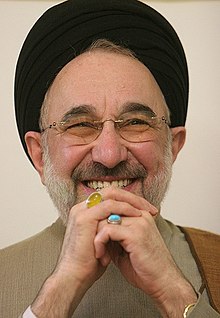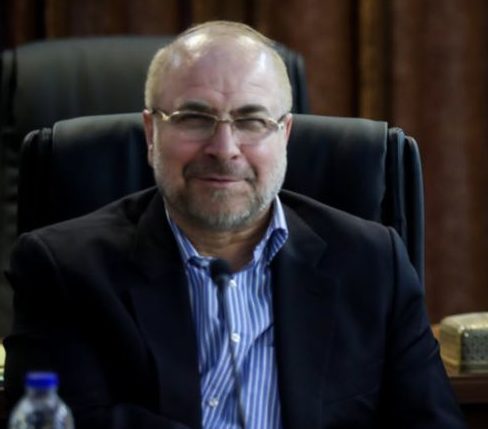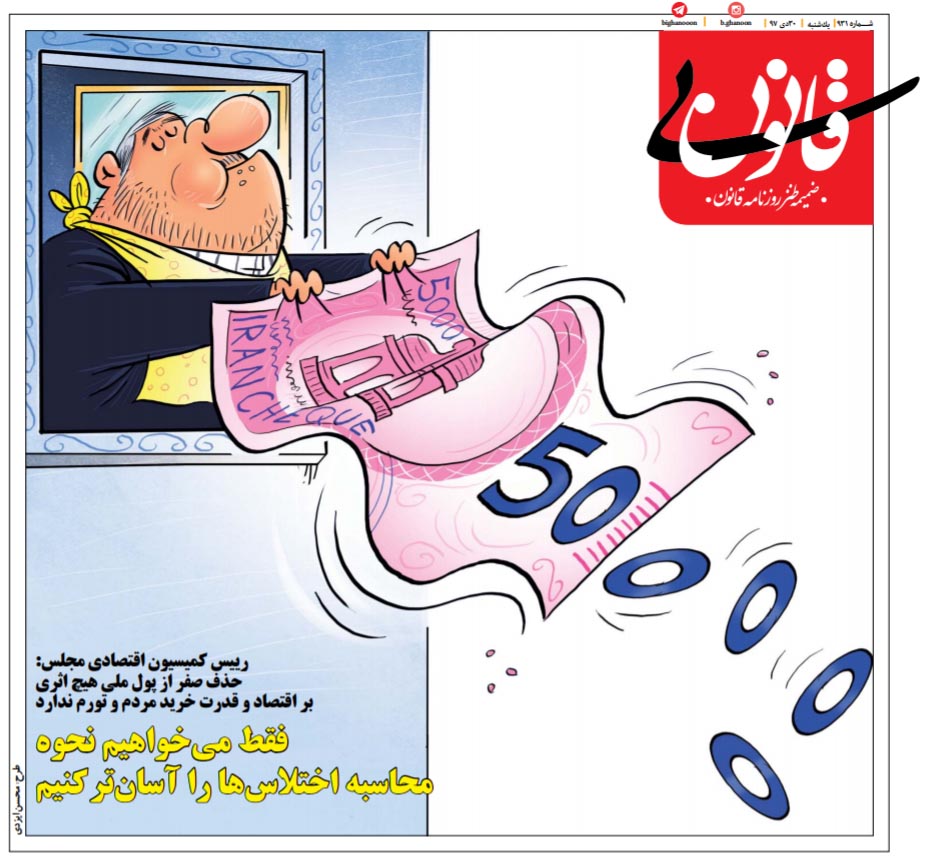August 9, 2019

With Majlis elections just six months away, the political jockeying is rapidly moving into high gear, with the right divided over whom to follow (as always) and the left divided over whether to boycott the elections as a waste of time (as always).
Former President Moham-mad Khatami, who has always strongly opposed boycotts as abandoning the field, now acknowledges that his supporters are going to have a hard time motivating left-leaning voters to bother going to the polls.
On the other side of the scale, former Tehran Mayor Moham-mad-Baqer Qalibaf is making noises about running an entirely new party that would campaign separately from the Principleists, the broad but little organized right side of the spectrum.

The elections will be held next February 21 for all 290 seats in the Majlis.
Qalibaf appears to have made up his mind to lead a third way to win the next Majlis. After his defeat in the 2017 presidential election and feeling let down by his conservative allies who chose to back hardline cleric Ebrahim Raisi as their candidate, Qalibaf said he was going to form a third faction he called “neo-conservatives,” which was neither Reformist nor Principleist.
However, according to the daily Sharq, “Unlike former President Mahmud Ahmadi-nejad, Qalibaf is not willing to separate himself from his conservative roots or at least to ignore those roots. Meanwhile, the conservative faction is not likely to cut its ties with Qalibaf although it has not served his interests at election time.”
Sharq, a Reformist daily, went on to say, “It seems that the idea of neo-conservatism put forward by Qalibaf and his supporters is a political game to get a bigger share of power.”
However, according to Sharq, “What they have put forward so far as the objectives of neo-conservatism are simply slogans. In practice, no difference has been observed between Qalibaf supporters’ neo-con activism and that of their conservative fellows.”
But the most important thing that can damage Qalibaf’s campaign is his track record during the past 14 years. He has been linked to one corruption scandal after another. The worst was the sale of city-owned land to his friends for pittances. The most recent involved payments from city accounts to a charity operated by his wife
Many of Qalibaf’s managers at the Tehran municipality, including his deputy, Isa Sharifi, have also been implicated in corruption cases.
On the other side of the political aisle, senior Reformist figures are trying to restore people’s trust — or at least preventing any further discontent. Their strategy, which has been billed as “conditional participation,” appears to be tantamount to the issuing of an ultimatum to the Iranian state in general and the Guardian Council in particular. In other words: Let our leaders run or face a boycott by our voters.
The Guardian Council vetoed most prominent Reformists before the last Majlis election, leaving the party slate to be filled by unknowns. Still, the Reformists won every single seat in Tehran.
Mostafa Tajzadeh, a prominent Reformist, told a local daily June 1, “We shouldn’t take part in the elections at any price…. If they reject our main candidates, we will announce to the people that we wanted to take part in the elections based on the [proposed] ticket, but we won’t participate in the elections because our candidates are rejected.”
The outspoken Tajzadeh, who was jailed alongside scores of other Reformists after the 2009 presidential vote, then addressed the Iranian state, saying that it must accept responsibility for a possible Reformist decision not to participate in the 2020 parliamentary elections.
In this vein, he warned, “Today, the people are asking what the [parliament members] are supposed to do and to what extent they have authority. If they do not have any authority, then why should we vote?” Laying blame for the failures the Reformist camp is facing on both the Iranian “deep state” and the Trump Administration, Tajzadeh said the “deep state” interferes in many minor and major issues, including the appointment and dismissal of officials.
Saeed Hajjarian, a prominent Reformist theoretician, proposed sarcastically in May that Rohani ought to step down before the Majlis elections so presidential polls could be held concurrently. This would, according to Hajjarian, end the issue pertaining to “dual governance,” paving the way for the conservative-dominated broader political establishment to take over both the government and the Majlis.
Former President Khatami says the voters who have backed the Reformists in the past may be out of patience and may just stay home regardless of what the Reformists do or say. He notes that the rightwing managed to gut his authority when he was president from 1997 to 2005 and has managed to gut the authority of President Rohani since he was first elected in 2013. As a result, there simply has not been much in the way of reform.
In the absence of reforms, convincing people to go to vote in the next elections will be a tough undertaking, Khatami reminded Reformist members of Majlis when he addressed them last month.
Khatami described the current condition of Iran as “despondent” and stressed that the Islamic Republic’s governing system “should be reformed and become flexible.”
Khatami said, “Today, it is tough to call on the people to come forward and vote again. Do you think people will listen to you and me again and participate in the next elections?” Khatami asked, and immediately added, “I believe it is unlikely unless we witness evolution in the coming year.”
Meanwhile, without naming any group, Khatami accused some “political factions” of attempting to deepen the sense of despondency in society, adding, “A Reformist loss will never lead to their rival’s gain; it will only help subversive forces.”
























